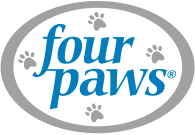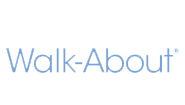Puppy Proofing Your Home and Yard
Puppies are born for trouble. They don’t understand the dangers of electrical wires, plastic bags, open fireplaces, pine oil cleaners, fabric softener sheets, batteries, mothballs, pennies, drapery cords, fishing lines, razors, toxic plants and chemicals, and steep stairs. They can ruin your home or injure themselves in a matter of five unsupervised seconds. Since you can’t rely on your puppy to look out for himself or your house, the job falls to you.
Electric Cords
Puppies chew on electrical cords, a dining adventure that is life-threatening. Run electrical cords through spiral cable wrap or cord concealers, or tack them to walls where they won’t be conspicuous. You can also spray cords with substances like Four Paws® Bitter Lime® Pump Spray, an effective taste deterrent.
Food
Although most human food is safe for dogs in reasonable quantities, there are some notorious exceptions. Chocolate, grapes, chicken bones, meat trimmings, onions, xylitol (an artificial sweetener found in chewing gum), and macadamia nuts can be dangerous. Even “safe” food is dangerous because a puppy will eat every bit of it. Keep human food out of your puppy’s reach.
Furniture, Doors, and Stairs
Puppies can get their tails caught under chairs, become trapped between sofa cushions, and encounter furniture hazards that you may not expect. Keep an eye on your pup. He’ll want to follow you wherever you go, and it’s easy to forget this and close a door on him. Keep doors and windows to the outside closed, and block stairs with a gate.
Supervision is the key to safety. Crate or pen your puppy indoors if you can’t watch him. Exercise pens give your puppy a chance to play and you a chance to move around the house without worrying that he’ll get into trouble.
Holiday Horrors
Puppies steal Christmas ornaments, which they promptly break or swallow, to the advantage of neither. Angel hair seems tasty, but it is made from spun glass. Tinsel clogs the gastrointestinal tract. Pine needles cause irritation to the intestinal lining. You can prevent some of this by vacuuming beneath the tree. Some people use popcorn or gingerbread to decorate their tree. Puppies love this decorative touch and will eat the string as well as the food it’s attached to.
Kids
Even the best-behaved child can step or fall on a dog. Less well-behaved kids may pull his tail or chase him. This behavior is dangerous for puppies, who are not only more fragile than adult dogs, but whose opinion of people, especially little people, is just forming. Supervise children and puppies when they are together. Let your puppy have a refuge (like his Four Paws® Dog Crate) to go to when he is tired of playing, and make sure that your child knows the saying “Let sleeping dogs lie.” Your dog’s crate or bed should be off-limits.
Kitty Litter
Most dogs eat cat poop when they can. Put the kitty litter box out of reach behind a gate or in a separate room with a special cat door. Litter can cause intestinal obstructions in puppies, whether it has cat feces in it or not.
Medications
Both prescription and over-the-counter medications can be dangerous. Keep all medications (including “harmless” supplements) in a safe, dog-free area. Puppies ignore child-proof containers; they will simply crunch up the whole bottle.
Pesticides and Poisons
- Antifreeze: Thousands of dogs die each year from antifreeze poisoning. Keep your puppy away from your garage, and wipe up all antifreeze spills.
- Fertilizers and pesticides: If your puppy comes into contact with a concentrated lawn product by walking over freshly sprayed dewy grass, he can absorb its chemicals through his footpads. If he rolls in it and then licks himself, he can ingest it. If you use an insecticide on your lawn and your puppy eats the poisoned bugs, he’s ingesting the poison. Use nontoxic, organic products, and follow the directions on the packaging.
- Rat and mouse poisons: These may contain terrible poisons, some of which have no antidote. Snail bait also poisons dogs. It tastes sweet, making it especially attractive. Don’t use it.
Toilets
Keep the toilet bowl lid closed so that your puppy doesn’t start drinking the water, or shut the bathroom door. If you’re not sure you can remember, refrain from using automatic toilet bowl cleaners.
Trash Cans
Trash cans (including the bathroom wastebasket) should be placed behind closed doors or in dog-proof containers.
Yard
Puppies can get into just as much trouble outside as inside, so youngsters need constant supervision while they are outside. Never leave a puppy alone in a yard, even for a few minutes.








